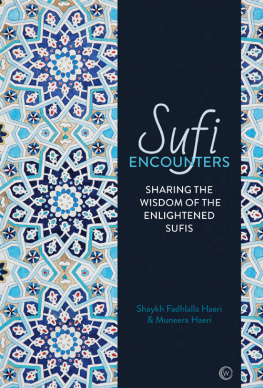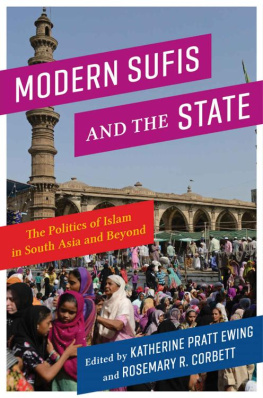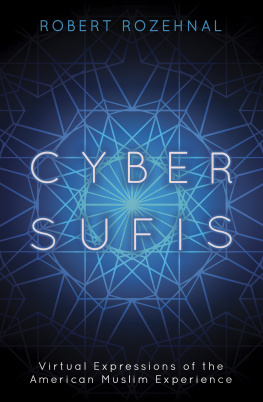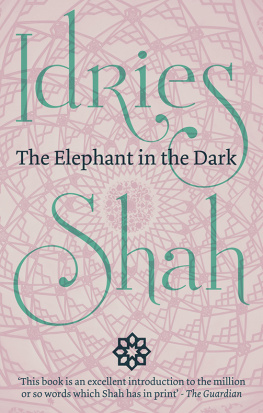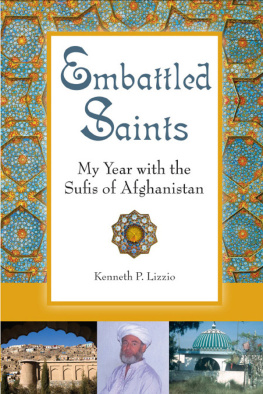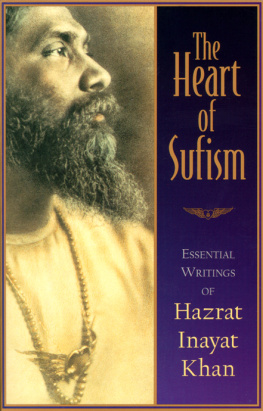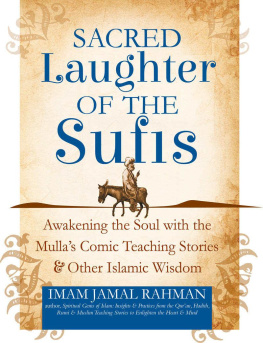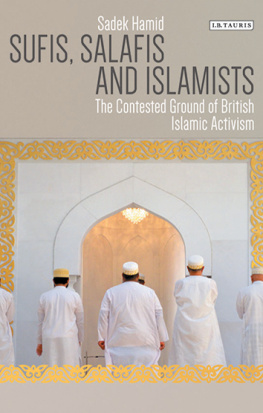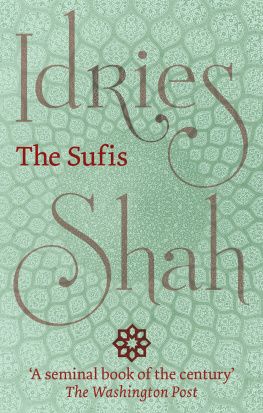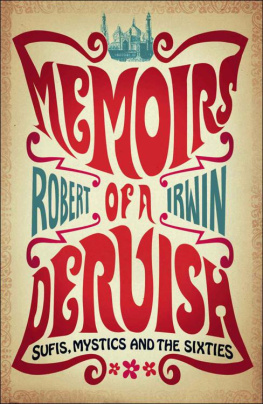All rights reserved. No part of this publication may be reproduced, stored in a retrieval system, or transmitted, in any form or by any means, electronic, mechanical, photocopying, recording or otherwise, without written permission in accordance with the provisions of the Copyright Act 1956 (as amended). Any person or persons who do any unauthorized act in relation to this publication may be liable to criminal prosecution and civil claims for damages.
Introduction
The Sufis are noted for their stories, many of which feature a semi-mythical character known as Mulla Nasrudin. At times Nasrudin appears profoundly wise, at others he behaves like a madman. Like life, he is unpredictable. So are the stories about him, for they usually involve one or more unexpected twists. Idries Shah, author of many books on the Sufis and Sufism, relates the following example:
One day the villagers thought they would play a joke on Nasrudin. As he was supposed to be a holy man of some indefinable sort, they went to him and asked him to preach a sermon in their mosque. He agreed.
When the day came, Nasrudin mounted the pulpit and spoke:
O people! Do you know what I am going to tell you?
No, we do not know, they cried.
Until you know, I cannot say. You are too ignorant to make a start on, said the Mulla, overcome with indignation that such ignorant people should waste his time. He descended from the pulpit and went home.
Slightly chagrined, a deputation went to his house again, and asked him to preach the following Friday, the day of prayer.
Nasrudin started his sermon with the same question as before. This time the congregation answered, as one man:
Yes, we know.
In that case, said the Mulla, there is no need for me to detain you longer. You may go. And he returned home.
Having been prevailed upon to preach for the third Friday in succession, he started his address as before:
Do you know or do you not?
The congregation was ready.
Some of us do, and others do not.
Excellent, said Nasrudin, then let those who know communicate their knowledge to those who do not.
And he went home.
(Idries Shah, The Exploits of the Incomparable Mulla Nasrudin, 44)
At first glance the story may appear to be little more than a joke about Nasrudin turning the tables on some slow-witted villagers. However, it also tells us quite a lot about the Sufis, not least in the way that Nasrudin, the Sufi, is introduced into the story as a holy man of some indefinable sort. That is how the villagers in the story see Nasrudin. They are unable to fit him into their normal definition of who or what a holy man is and how, in their view at least, he should behave. That is the most obvious thing the story has to tell us about the Sufis: they do not conform to normal expectations of who or what a holy man should be.
The story also has something to say about ourselves, because that is who the villagers represent; or, rather, it comments on the way in which we have been conditioned to behave and think. In fact this is the subject of the eccentric Mullas sermons, but perhaps, because he says so few words it would be more accurate to describe them as practical demonstrations. In one sense the story is a practical demonstration too, for it offers us an illustration of two entirely different ways of thinking and behaving: the one represented by Mulla Nasrudin and the other by the villagers. The difference between these two ways is perhaps less ambiguously illustrated in another story, this time from The Conference of the Birds, a classic of Sufi literature written about 800 years ago by Fariduddin Attar, a Sufi from Persia.
A rich man was riding along a city street when he passed a poor old man, dressed in rags, sitting in a doorway. Not knowing him to be a Sufi, the rich man stopped his horse, looked down at the person he took to be a beggar, and asked: Who is the better of the two of us, me or you?
The old man replied, O you ignoramus! Your words are as hollow as your head. I know that Sufis do not normally sing their own praises, but, since you oblige me to do so, let me tell you that one Sufi is worth a thousand men like you. Your ignorance of the Way has made you the slave of your inflated ego. You have been harnessed by it and it has made an ass of you, because you do whatever it tells you to do. Whoever follows the Way of Truth learns how to master his ego, and rides it like an ass. Now, since I have mastered what has mastered you, it should be obvious which one is the better of us. You are in love with your lower self. It has lit the fires of desire in you, and you are being burned alive in their flames.
The essential difference between the two ways is that with one of them our thoughts and behaviour are governed by our ego or lower self: with the other they are not. When we have learned to master our lower self, a transformation of consciousness takes place and we are guided by our higher self. In the simplest of terms, a Sufi is someone who has mastered his or her ego and attained a higher state of consciousness.
There is, of course, much more to it than that. How much more depends on how far along the Sufi Path we are willing to travel. As the above stories about Nasrudin and the rich man and the Sufi demonstrate, the Path is not just an intellectual exercise. It is a practical path of transformation and fulfilment which enables us to free ourselves from the veils of the ego, unite the inner and outer worlds and discover the unified self within.
To use a favoured Sufi analogy: the goal of the Sufi Path is for the drop (the individual self) to merge with the Ocean of Being from whence it came. This is what happens to us at the moment of our physical death, which is why all true spiritual traditions encourage us to make that transition consciously, while we are still in the body. Die before you die, say the Sufis. In other words, to be a Sufi is to die to who we have been conditioned to think we are, so that we might become what we are capable of becoming.
The path of Sufism is the elimination of any intermediaries between the individual and God. The goal is to act as an extension of God, not to be a barrier.
(Sheikh Muzaffer Ozak, Love is the Wine, 1)
A Sufism without Islam?
Many readers may already have heard the Sufis defined as Islamic mystics, or Sufism described as the mystical heart of Islam. There is also a Sufism that, in the present context, could perhaps be described as Western Sufism that is, a Sufism that does not require its adherents to practise the religion of Islam. Further, some Westerners are drawn to Sufism because of the insight and understanding they feel they gain from studying it and yet neither wish to go further down the Sufi Path nor have anything to do with Islam. Writing in the 1970s, long before the words spirituality or New Age had entered our everyday vocabulary, William Stoddart gave voice to certain concerns raised by these different approaches to Sufism.
Sufism is the spirituality or mysticism of the religion of Islam. Mysticism makes its appearance as an inward dimension in every religion, and to attempt to separate the mystical element from the religion which is its outward support is an arbitrary act of violence which cannot but be fatal to the mysticism, or spiritual path, concerned. In the present century, however, the attempt to do precisely this has been made repeatedly, and time and time again we are offered a Vedanta (or a yoga) without Hinduism, or a Zen (or something purporting to be such) without Buddhism.


